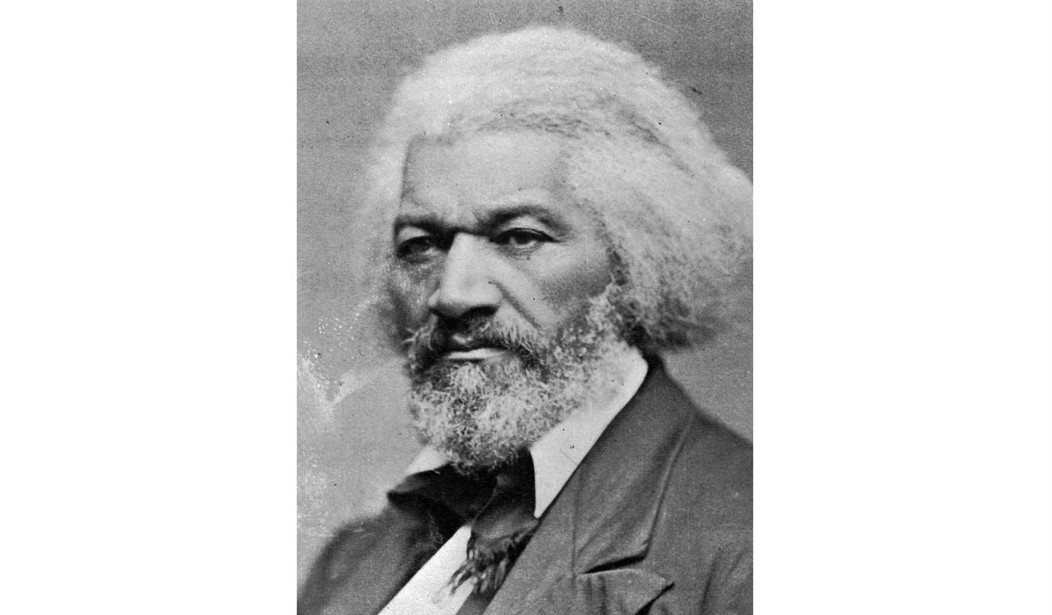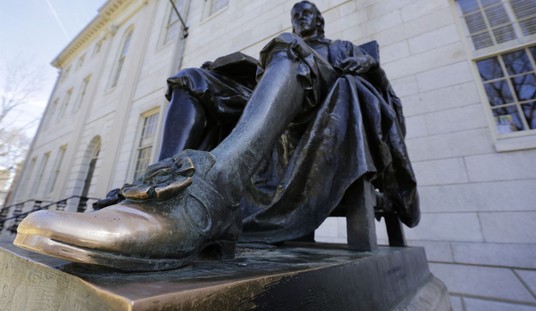
Over this past July 4 weekend, much hay was made of Frederick Douglass’ July 5, 1852 oration delivered in Rochester, NY’s Corinthian Hall. Leftists and Democrats have pulled out this paragraph from the speech, and are creating entire narratives that the exacting and bombastic abolitionist never intended.
What, to the American slave, is your 4th of July? I answer: a day that reveals to him, more than all other days in the year, the gross injustice and cruelty to which he is the constant victim. To him, your celebration is a sham; your boasted liberty, an unholy license; your national greatness, swelling vanity; your sounds of rejoicing are empty and heartless; your denunciations of tyrants, brass fronted impudence; your shouts of liberty and equality, hollow mockery; your prayers and hymns, your sermons and thanksgivings, with all your religious parade, and solemnity, are, to him, mere bombast, fraud, deception, impiety, and hypocrisy — a thin veil to cover up crimes which would disgrace a nation of savages. There is not a nation on the earth guilty of practices, more shocking and bloody, than are the people of these United States, at this very hour.
So, they take this one paragraph, and run with it. Robert S. Levine took to the Baltimore Sun to posit this stunning conclusion:
Teachers in Texas who told me they were nervous about teaching key Douglass works will no doubt be even more nervous after the Sept. 1st adoption of the legislation intended to keep darker aspects of U.S. history under wraps. Will teachers in Texas, Idaho, Tennessee and other states adopting such laws be willing to put their jobs on the line by assigning works like Douglass’ Fourth of July speech? We could even ask whether teachers would be willing to risk their jobs by teaching African American literature. After all, a key theme among African American writers, from David Walker to Toni Morrison, is precisely what Douglass addresses in much of his writing: the history of slavery and racism in the United States as viewed from the perspective of Black people.
In the spirit of Frederick Douglass, we need to use this year’s July Fourth as a reminder of the American tradition of critique. As Douglass put things hopefully at the end of his speech, we need to draw “encouragement from the Declaration of Independence, the great principles it contains,” to continue to work of achieving the promise of America.
Conflating anti-slavery with disguised critical race theory? How on brand.
What amazes me is that no one is using the tradition of critique to actually talk about Critical Race Theory. Instead, they incorporated it under cover of darkness, when they were found out and confronted, they lied, and when taxpaying parents rightfully pushed back, they were maligned, attacked, and the specter of racism was raised.
Despite the outcry of millions of parents of all races nationwide, across a multitude of school districts, the NEA, America’s largest teachers union, has decided to promote CRT in the classroom and push for its use, as my colleague Bonchie explains here.
BREAKING: The nation's largest teachers union has approved a plan to promote critical race theory in all 50 states and 14,000 local school districts.
The argument that "critical race theory isn't in K-12 schools" is officially dead. pic.twitter.com/BMRDoAK0sA
— Christopher F. Rufo ⚔️ (@realchrisrufo) July 3, 2021
Essentially, Levine wants to bring back the “tradition of critique” for information and causes he agrees with. If we were to use his argument, then we need to critique creationism and evolution as well.
We know how well that has gone over.
I am amazed the Levine and his ilk can so cavalierly skip over the over 4,900 words Douglass wrote which precede the paragraph that they love to use as a cudgel. Douglass spoke about the country’s founding as an arbiter and source for good. That the foundation of America is a blueprint for liberty, and this is why that foundation must be made true by ending slavery in the United States. Douglass rightly expounded that slavery is antithesis to the heart and soul of a great nation, and if America was to continue to be that, it must change its ways.
Douglass debunks the 1619 Project blather that America’s founding is rooted in systemic racism and slavery with this insightful phrasing:
Fellow-citizens! there is no matter in respect to which, the people of the North have allowed themselves to be so ruinously imposed upon, as that of the pro-slavery character of the Constitution. In that instrument I hold there is neither warrant, license, nor sanction of the hateful thing; but, interpreted as it ought to be interpreted, the Constitution is a GLORIOUS LIBERTY DOCUMENT. Read its preamble, consider its purposes. Is slavery among them? Is it at the gateway? or is it in the temple? It is neither. While I do not intend to argue this question on the present occasion, let me ask, if it be not somewhat singular that, if the Constitution were intended to be, by its framers and adopters, a slave-holding instrument, why neither slavery, slaveholding, nor slave can anywhere be found in it.
[…]
Now, take the Constitution according to its plain reading, and I defy the presentation of a single pro-slavery clause in it. On the other hand it will be found to contain principles and purposes, entirely hostile to the existence of slavery.
It is a powerful, articulate, and scathing speech, which held its harshest words for the American Church, particularly for their tolerance of the recently enacted Fugitive Slave Law of 1850, which required escaped slaves be returned to their slave masters.
The American church is guilty, when viewed in connection with what it is doing to uphold slavery; but it is superlatively guilty when viewed in connection with its ability to abolish slavery. The sin of which it is guilty is one of omission as well as of commission. Albert Barnes but uttered what the common sense of every man at all observant of the actual state of the case will receive as truth, when he declared that “There is no power out of the church that could sustain slavery an hour, if it were not sustained in it.”
Let the religious press, the pulpit, the Sunday school, the conference meeting, the great ecclesiastical, missionary, Bible and tract associations of the land array their immense powers against slavery and slave-holding; and the whole system of crime and blood would be scattered to the winds; and that they do not do this involves them in the most awful responsibility of which the mind can conceive.
From the COVID-19 pandemic to Critical Race Theory, there are many in the American Church today who are just as complicit in either their compliance, or their silence and omission, as those were in the 1850s about the evils of slavery. The modern church is expressing the same cowardice and hypocrisy: submitting under a go-along-to-get-along attitude, while people needlessly died, people’s hope and support systems were shut to them, and children are being taught to hate certain races and celebrate every aspect of other races, no matter how wrong.
Douglass’ July 5 Speech was a wakeup call then, and changed the trajectory of slavery in America, which was ultimately outlawed through the Civil War, the Emancipation Proclamation, and Constitutional Amendments. So it should be used as a wakeup call now, not cherry-picked and presented as statement on so-called systemic racism.
Douglass ends with hope in the foundations and founding documents of this nation. He does not despise or destroy their existence, but points to them as a standard that must be adhered to, in order to secure and ensure the same freedom for Southern Blacks that existed for Whites.
Allow me to say, in conclusion, notwithstanding the dark picture I have this day presented of the state of the nation, I do not despair of this country. There are forces in operation, which must inevitably work the downfall of slavery. “The arm of the Lord is not shortened,” and the doom of slavery is certain. I, therefore, leave off where I began, with hope. While drawing encouragement from the Declaration of Independence, the great principles it contains, and the genius of American Institutions, my spirit is also cheered by the obvious tendencies of the age.
Knowing the entirety of history is critical in understanding the rituals and traditions that assist in our remembrance and celebration of that history, including being called into account for not living up to the ideals as founded. Douglass understood this better than most.














